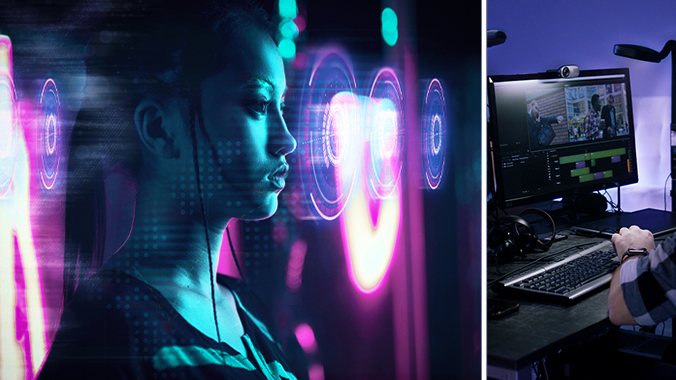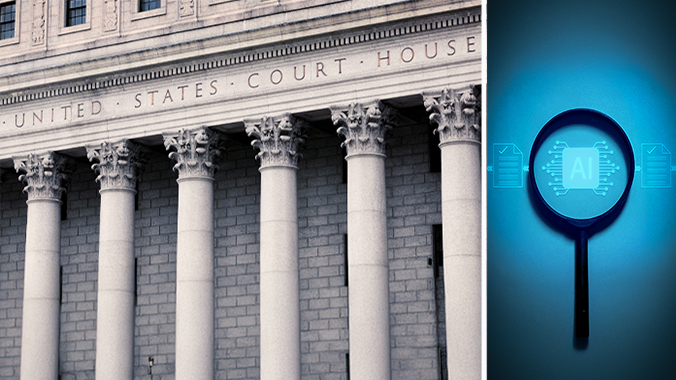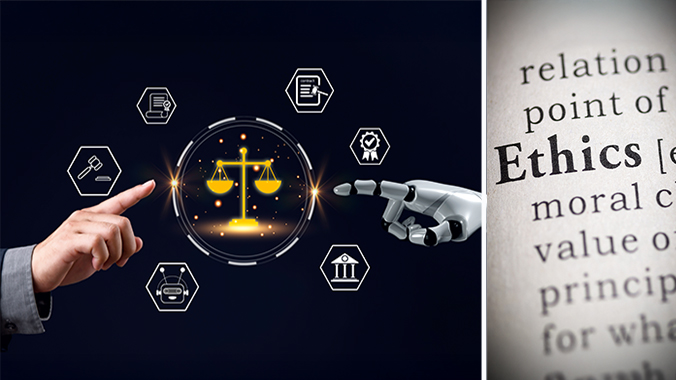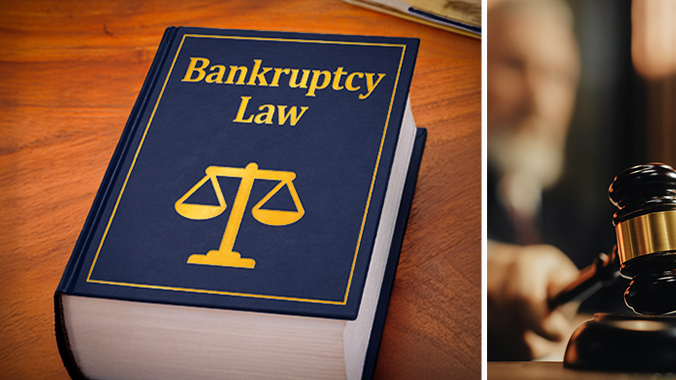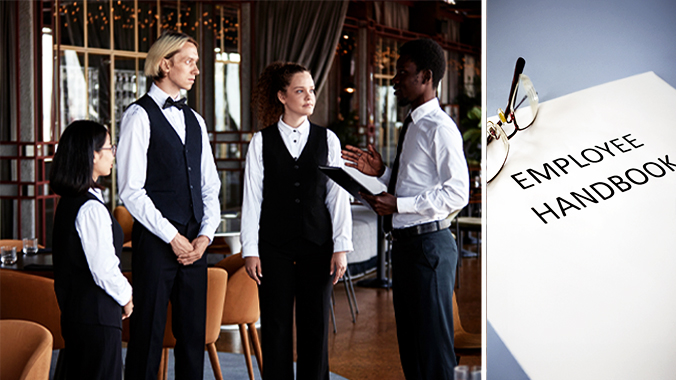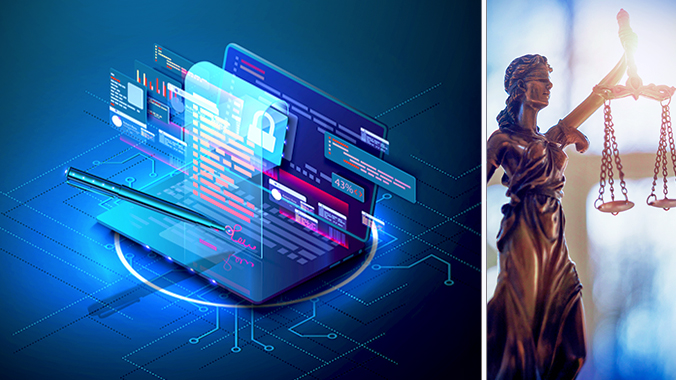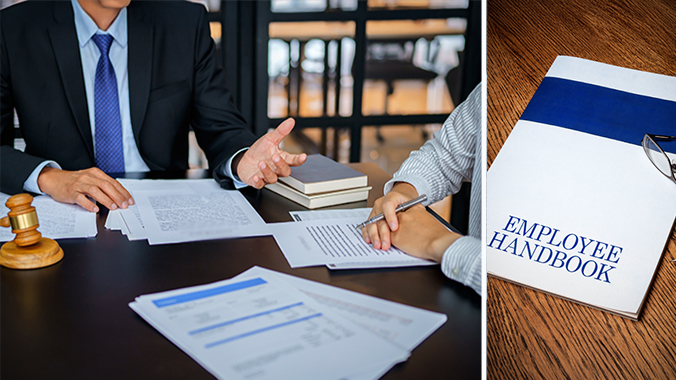Creating a Trial Notebook: From A-Z (2025 Edition)




On-Demand: September 24, 2025
2.75 hour CLE
Tuition: $245.00
Co-Sponsored by myLawCLE
Get this course, plus over 1,000+ of live webinars.
Learn More
Training 5 or more people?
Sign-up for a law firm subscription plan and each attorney in the firm receives free access to all CLE Programs
Program Summary
Session I – Practical Tips for Creating and Using a Trial Notebook – Sean Healy
In this session we will learn practical tips for creating and using a trial notebook. Creation of the trial notebook begins very early in the litigation process, you will learn why that is important. You will also learn how to effectively use your trial notebook in the courtroom during trial.
Key topics to be discussed:
- What type of notebook are you creating: Physical or digital?
- What materials should I include in my trial notebook?
- How can I use my trial notebook when arguing before the court
- Use of trial notebook during witness questioning
Session II – Organize, Prepare, Succeed: Trial Preparation Techniques for Paralegals – Heather Crawford
This session equips attendees with the essential tools and strategies needed to effectively support trial teams from pretrial planning through trial day execution. Focusing on the creation and management of trial notebooks, attendees will learn how to organize critical materials such as pleadings, exhibits, witness lists, and jury instructions in a format that ensures courtroom readiness. The session explores how to align trial notebook development with pretrial workflows using calendars, checklists, and collaboration with attorneys. Participants will also gain insight into building streamlined exhibit and witness management systems, including tips for pre-marking exhibits and coordinating with court staff and opposing counsel. Additionally, the session examines digital versus paper-based notebooks, offering practical guidance on using electronic tools and hybrid approaches for modern trial preparation. Concluding with trial day readiness, the session includes hands-on strategies for quick access to materials under pressure and practice techniques to help paralegals confidently support attorneys in high-stakes courtroom environments.
Key topics to be discussed:
- Importance of trial preparation and the use of trial notebooks
- Mastering the trial notebook: Organizing for success in the courtroom
- Pretrial planning and trial notebook integration
- Building an effective exhibit and witness management system
- Digital vs. paper: Creating trial notebooks for the modern courtroom
- Trial day readiness: What every paralegal should know
Session III – May It Please the Court: Effective Trial Practice – Hon. Stephen Kaus and Judge Judith H. Ramseyer
Judges view a successful trial as one that’s well-prepared and runs smoothly. That means having jurors, courtroom staff, exhibits, and technology ready ahead of time, and resolving key motions early. During trial, it’s important to stay organized, scheduling witnesses carefully, limiting surprise motions, and avoiding delays that waste jurors’ time. Judges appreciate it when attorneys work efficiently, present clearly, and treat the courtroom team with respect. Good preparation keeps things moving, shows competence, and shapes how the jury sees the case.
Key topics to be discussed:
- Prepare early and thoroughly: Have jurors, courtroom staff, exhibits, and technology ready well in advance
- Resolve motions ahead of time: File dispositive and in limine motions early to give the judge time to rule
- Stay organized during trial: Keep witness schedules tight, avoid last-minute motions, and minimize downtime
- Respect courtroom dynamics: Collaborate with staff, understand courtroom procedures, and be courteous to the team
- Present efficiently: Use clear visuals, concise arguments, and avoid belaboring points to maintain juror attention
- Perception matters: Strong preparation and professionalism influence how jurors view your case and your competence
This course is co-sponsored with myLawCLE.
![]() Closed-captioning available
Closed-captioning available
Speakers
 Hon. Stephen Kaus | JAMS
Hon. Stephen Kaus | JAMS
Hon. Stephen Kaus (Ret.) brings over 50 years of legal experience to his JAMS practice, including 12 years as a judge on the Alameda Superior Court. He managed a direct calendar department with 600 to 800 cases, overseeing complex multiparty and two-party disputes while conducting numerous trials and settlement conferences.
Before his judicial career, Judge Kaus served as a deputy public defender in Contra Costa County, transitioning to civil litigation in 1980. He represented professionals, including engineers, attorneys and judges, handling construction, insurance and commercial disputes, representing both plaintiffs and defendants in multiple complex cases.
In 1990, Judge Kaus joined a midsize San Francisco law firm, where he represented media, cable TV and telecom clients in employment, contract and franchising disputes. He chaired the litigation department, served on the Executive Committee and handled construction cases involving major public buildings such as concert halls and hospitals. He also served on the First District Court of Appeal mediation panel.
A dedicated leader in the Bar Association of San Francisco (BASF), Judge Kaus served on its board of directors and received its Award of Merit along with a special award from the San Francisco Public Defender for his work as chair of its Special Committee on Conflicts Counsel in 1995.
 Judge Judith H. Ramseyer | JAMS
Judge Judith H. Ramseyer | JAMS
Judge Judith H. Ramseyer (Ret.) joins JAMS after having acquired a broad range of experience over her 50-year professional career. Known for her thorough preparation, attention to detail and independent thought, Judge Ramseyer wants all participants to feel respected, heard, and to understand how decisions that affect them are made. Having trained as a mental health counselor, she has a strong commitment to problem-solving. Her extensive legal experience helps her quickly identify issues that are key components of complex problems. She also is task-oriented and effective, and her practical insight and creativity help parties reach an equitable resolution. With a relaxed demeanor, Judge Ramseyer brings a confident tenacity to her work.
While she was a practicing lawyer and a superior court judge, Judge Ramseyer gained extensive experience in diverse practice areas and from a variety of perspectives. As an impartial jurist and as an advocate on behalf of both plaintiffs and defendants, she has litigated matters including personal injury, business and commercial disputes, class and shareholder derivative actions, professional negligence, consumer protection, product liability, employment, insurance coverage, real estate and domestic relations. She understands how a case may be viewed by a judge and jury, which can help parties assess the strengths and weaknesses of their own cases.
 Sean P. Healy | Healy Law Offices P.C
Sean P. Healy | Healy Law Offices P.C
Sean Healy is an attorney in private practice in Tyler, Texas, focusing on business law, civil litigation, family law, and firearms and aviation matters. He has extensive courtroom experience and has spoken at numerous continuing legal education programs for attorneys and judges.
Mr. Healy has served as Course Director for the State Bar of Texas Firearms Law Seminars in 2012 and 2013, is Co-Director of the 2024 Seminar, and has presented at nearly every annual seminar since its inception. He has also taught appellate advocacy in law school and business law at the college level, bringing a strong background in legal instruction.
In addition to his law practice, Mr. Healy is a mediator, arbitrator, and member of the American Arbitration Association’s Panel of Mediators. He has authored multiple publications, including chapters in Texas Perspectives on Firearms Law (2015) and Essentials of Texas Firearms Law (2020), and co-authored the bestselling book The Legal Guide to NFA Firearms and Gun Trusts (2016).
 Heather Crawford
Heather Crawford
Heather Crawford is a Minnesota freelance paralegal with 20 years of experience in civil litigation, family law, indigent law, and class actions. She has supported attorneys at every level of the judicial system, from local municipal court all the way to the US Supreme Court. She loves document production and any tasks that lets her organize large piles of paper.
Agenda
Session I – Practical Tips for Creating and Using a Trial Notebook | 2:10pm – 3:10pm
- What type of notebook are you creating: Physical or digital?
- Does it matter?
- Can you do both?
- What materials should I include in my trial notebook?
- Counsel’s working binder
- Pretrial orders
- Jury instructions
- Opening/closing
- Witness question/outline
- Impeachment materials
- Relevant case law
- Courtroom protocol
- Everyone’s else copy
- Exhibits
- Paralegal’s copy
- Pretrial orders
- Jury instructions
- Opening/closing
- Witness question/outline
- Impeachment materials/entire depo transcript
- Relevant case law
- Courtroom protocol
- Witness subpoena’s/witness calendar
- Jury info
- Counsel’s working binder
- How can I use my trial notebook when arguing before the court
- Pretrial motions
- These are different than the dispositive motions
- In trial objections
- Sidebars
- Arguments in/out of the presence of the jury
- Pretrial motions
- Use of trial notebook during witness questioning
- Direct examination
- Cross examination
- Witness impeachment
Break | 3:10pm – 3:20pm
Session II – Organize, Prepare, Succeed: Trial Preparation Techniques for Paralegals | 3:20pm – 4:20pm
- Importance of trial preparation and the use of trial notebooks
- Mastering the trial notebook: Organizing for success in the courtroom
- Synopsis of what a trial notebook is and why it’s essential
- Sections to include pleadings, exhibits, witness lists, jury instructions, etc
- Tips for keeping notebooks updated and courtroom-ready
- Pretrial planning and trial notebook integration
- How to align pretrial workflows with trial notebook development
- Using checklists and calendars to coordinate key dates and filings
- Coordinating with attorneys to ensure seamless access to materials
- Building an effective exhibit and witness management system
- Integrating exhibit and witness tracking into your trial notebook
- Preparing exhibit lists, pre-marking exhibits, and organizing witness files
- Best practices for coordinating with court clerks and opposing counsel
- Digital vs. paper: Creating trial notebooks for the modern courtroom
- Advantages and risks of digital trial notebooks
- Tools and platforms paralegals can use for electronic trial preparation
- Hybrid strategies: Combining physical and digital formats
- Trial day readiness: What every paralegal should know
- Last-minute checklist using the trial notebook
- Strategies for quick retrieval of materials under pressure
- Role-playing and practice sessions to prepare for live trial support
Break | 4:20pm – 4:30pm
Session III – May It Please the Court: Effective Trial Practice | 4:30pm – 5:15pm
- Prepare early and thoroughly: Have jurors, courtroom staff, exhibits, and technology ready well in advance
- Resolve motions ahead of time: File dispositive and in limine motions early to give the judge time to rule
- Stay organized during trial: Keep witness schedules tight, avoid last-minute motions, and minimize downtime
- Respect courtroom dynamics: Collaborate with staff, understand courtroom procedures, and be courteous to the team
- Present efficiently: Use clear visuals, concise arguments, and avoid belaboring points to maintain juror attention
- Perception matters: Strong preparation and professionalism influence how jurors view your case and your competence
Credits
Alaska
Approved for CLE Credits
2.75 General
Alabama
Pending CLE Approval
2.75 General
Arkansas
Approved for CLE Credits
2.75 General
Arizona
Approved for CLE Credits
2.75 General
California
Approved for CLE Credits
2.75 General
Colorado
Approved for Self-Study Credits
3 General
Connecticut
Approved for CLE Credits
2.75 General
District of Columbia
No MCLE Required
2.75 CLE Hour(s)
Delaware
Pending CLE Approval
2.75 General
Florida
Approved via Attorney Submission
3.5 General Hours
Georgia
Approved for CLE Credits
3 General
Hawaii
Approved for CLE Credits
2.75 General
Iowa
Pending CLE Approval
2.75 General
Idaho
Pending CLE Approval
2.75 General
Illinois
Approved for Self-Study Credits
2.75 General
Indiana
Pending CLE Approval
2.75 General
Kansas
Pending CLE Approval
2.75 Substantive
Kentucky
Pending CLE Approval
2.75 General
Louisiana
Pending CLE Approval
2.75 General
Massachusetts
No MCLE Required
2.75 CLE Hour(s)
Maryland
No MCLE Required
2.75 CLE Hour(s)
Maine
Pending CLE Approval
2.75 General
Michigan
No MCLE Required
2.75 CLE Hour(s)
Minnesota
Approved for Self-Study Credits
2.75 General
Missouri
Approved for Self-Study Credits
3.3 General
Mississippi
Pending CLE Approval
2.8 General
Montana
Pending CLE Approval
2.75 General
North Carolina
Pending CLE Approval
2.75 General
North Dakota
Approved for CLE Credits
2.75 General
Nebraska
Pending CLE Approval
2.75 General
New Hampshire
Approved for CLE Credits
165 General minutes
New Jersey
Approved for CLE Credits
3.3 General
New Mexico
Approved for Self-Study Credits
2.7 General
Nevada
Pending CLE Approval
2.75 General
New York
Approved for CLE Credits
3.3 General
Ohio
Approved for Self-Study Credits
2.75 General
Oklahoma
Pending CLE Approval
3.5 General
Oregon
Pending CLE Approval
2.75 General
Pennsylvania
Approved for Self-Study Credits
3 General
Rhode Island
Approved for CLE Credits
3 General
South Carolina
Pending CLE Approval
2.75 General
South Dakota
No MCLE Required
2.75 CLE Hour(s)
Tennessee
Approved for Self-Study Credits
2.75 General
Texas
Approved for CLE Credits
2.75 General
Utah
Pending CLE Approval
2.75 General
Virginia
Not Eligible
2.75 General Hours
Vermont
Approved for CLE Credits
2.75 General
Washington
Approved for Self-Study Credits
2 Law & Legal, 0.75 Law & Legal
Wisconsin
Approved for Self-Study Credits
3 General
West Virginia
Pending CLE Approval
3.3 General
Wyoming
Pending CLE Approval
2.75 General
More CLE Webinars
Trending CLE Webinars










Upcoming CLE Webinars









